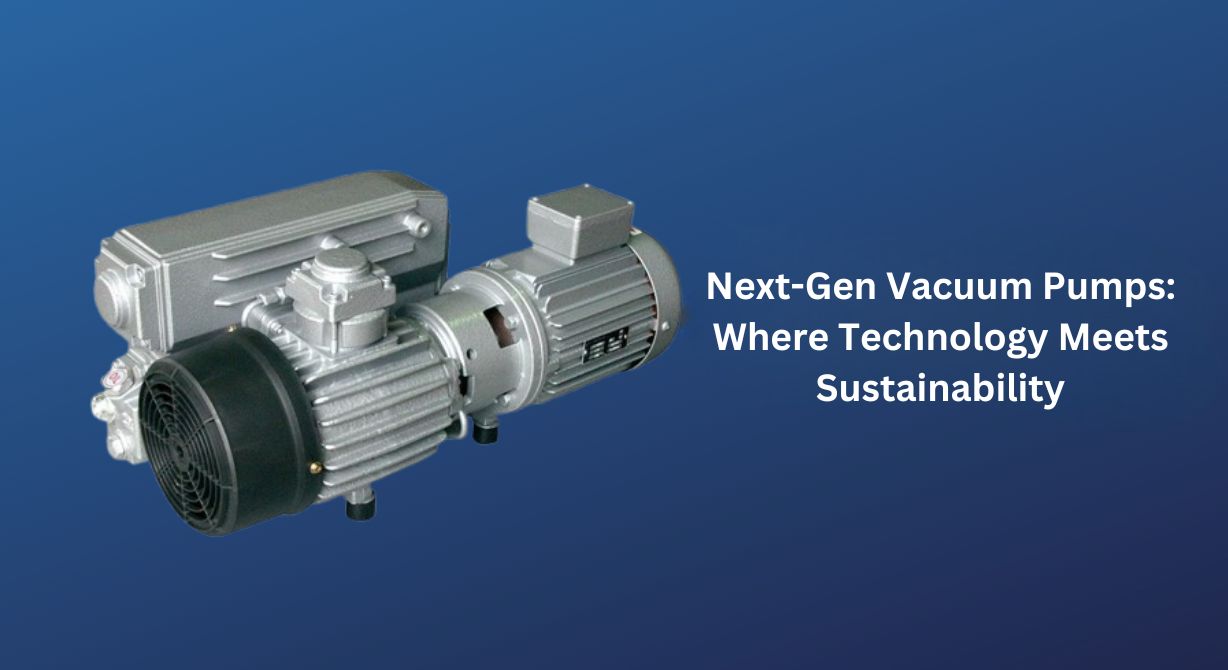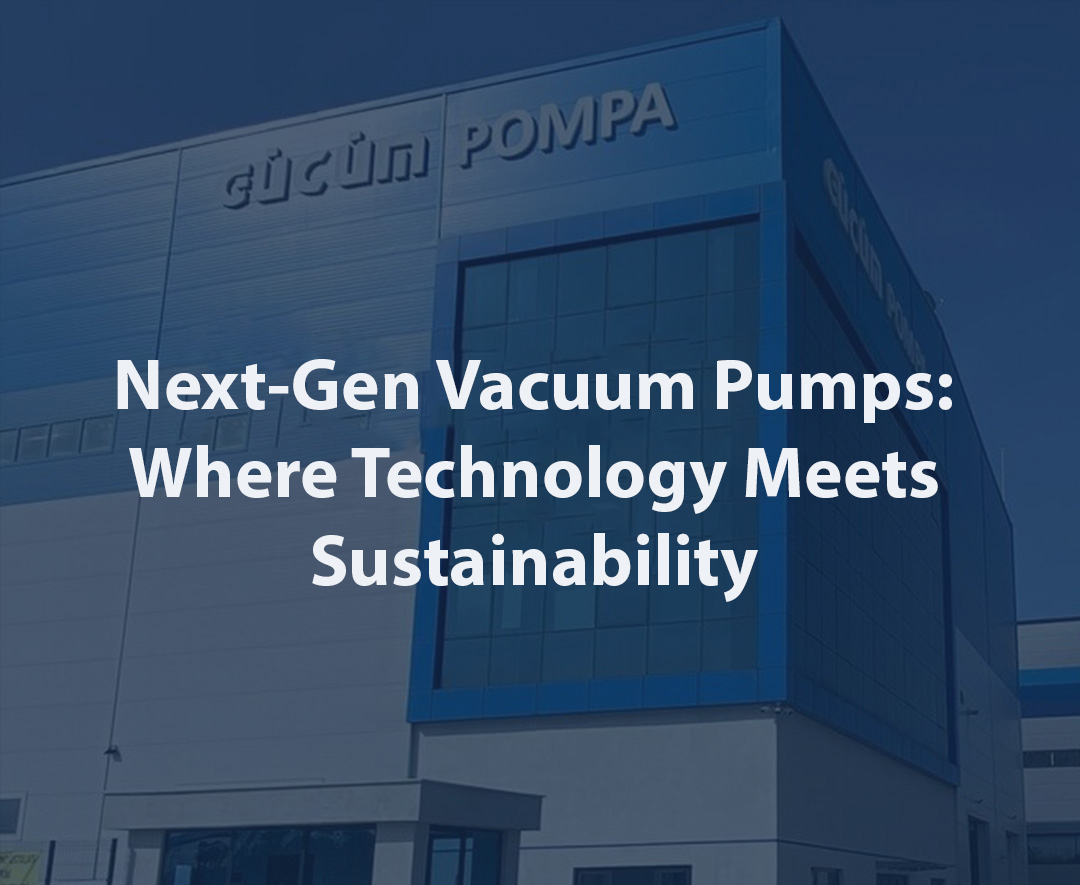Next-Gen Vacuum Pumps: Where Technology Meets Sustainability
Table of Contents
- Next-Gen Vacuum Pumps: Technology and Sustainability
- Innovative Technologies in Energy Efficiency
- Material Improvements for Longevity and Durability
- Smart Monitoring and Automated Maintenance Systems
- Reducing Environmental Impact and Carbon Footprint
- Integrated Solutions for Sustainable Production
- Future-Oriented Industrial Vacuum Pumps
Next-Gen Vacuum Pumps: Technology and Sustainability
Next-generation vacuum pumps are introducing revolutionary technological innovations in industrial production. Prioritizing energy savings, they enable reduced resource consumption in manufacturing processes. These pumps, with optimized electric motor structures and advanced engineering techniques, deliver high performance with low energy use. In factories with continuous operations, energy efficiency and uninterrupted performance are critical. Next-gen vacuum pumps are specifically designed to meet these needs.
These pumps also align with environmental sustainability goals. They contribute to reducing carbon emissions, conserving natural resources, and optimizing waste management. Beyond energy efficiency, quieter operation and low-vibration mechanisms minimize environmental pollution. Integration with Industry 4.0 applications enables digitalization and automated control of production lines, ensuring both eco-friendly and economically sustainable operations.
Industrial facilities are rapidly adopting these technologies due to rising energy costs and environmental regulations. Software developed for continuous monitoring and performance optimization maximizes energy savings. Smart systems adjust pump parameters in real-time, improving production quality and reducing operating costs. Ultimately, an ideal balance is achieved between energy efficiency and high productivity.
Innovative Technologies in Energy Efficiency
Energy efficiency directly impacts the economic and environmental performance of vacuum pumps. Next-gen pumps are equipped with variable speed drives (VSD) and frequency converters, allowing the pump to adjust its speed based on required capacity. This prevents unnecessary energy consumption, delivering significant electricity savings in facilities, particularly those with variable load conditions.
Advancements in motor technologies are also notable. High-efficiency electric motors offer longer lifespans with minimal heat loss and vibration. Electronic control systems optimize pump performance, reducing energy use to a minimum. Advanced cooling systems prevent overheating, preserving equipment efficiency.
Mechanical design improvements enhance energy efficiency. For instance, specially designed vanes and rotor geometries ensure balanced and effective airflow, allowing the pump to achieve the same vacuum level with less power. Friction-reducing coatings and materials minimize component wear and energy losses. This holistic approach lowers energy costs while boosting production quality.
Material Improvements for Longevity and Durability
The lifespan and durability of vacuum pumps are essential for uninterrupted production. Next-gen pumps leverage advancements in material science to significantly enhance durability. Special alloys and coatings resistant to corrosion and wear ensure pumps withstand harsh industrial conditions. Pumps in chemical processing, food production, or automotive industries operate reliably for years due to this durability.
Design improvements complement material advancements. Pump components are optimized against vibration and mechanical fatigue, reducing potential failures in production lines. This decreases maintenance frequency and minimizes downtime. Specialized materials for pumps exposed to high temperatures or aggressive chemicals cater to diverse industry needs.
Composite and nanotechnology-based materials in pump components offer both lightweight and durable advantages. These improvements simplify transportation and installation while enhancing operational performance. Extended component lifespans reduce maintenance costs and increase workforce efficiency, enabling businesses to achieve economic and operational sustainability.

Smart Monitoring and Automated Maintenance Systems
Digitalization and IoT technologies have transformed the performance management of industrial vacuum pumps. Smart monitoring systems track operating conditions in real-time, relaying critical data to central systems. Minor changes in parameters like temperature, pressure, or vibration trigger notifications to operators, enabling early failure detection.
Remote monitoring allows maintenance teams to oversee pump performance from outside the facility, speeding up maintenance processes in large or distributed plants. Automated maintenance systems optimize tasks like filter cleaning and lubrication, reducing maintenance time and costs. Scheduled maintenance prevents unexpected downtime and production interruptions.
Data analytics and AI algorithms predict maintenance needs by evaluating sensor data, allowing intervention before issues arise. This ensures efficiency remains at peak levels throughout the pump’s lifespan. Smart systems reduce operator workload while enhancing overall facility efficiency.
Reducing Environmental Impact and Carbon Footprint
Environmental sustainability is a cornerstone of modern industrial production. Reducing energy consumption in vacuum pumps is a key step in lowering carbon emissions. Next-gen pumps, with high-efficiency motors and optimized mechanics, significantly reduce carbon footprints. This enables facilities to comply with environmental standards while cutting costs.
Eco-friendly lubricants in pump systems minimize environmental harm. Recyclable materials used in production simplify waste management at the end of a pump’s lifecycle, supporting a sustainable industrial ecosystem. Reducing emissions aligns with regulatory requirements and corporate social responsibility goals.
Businesses measure the environmental performance of vacuum pumps in sustainability reports, building trust and prestige among customers and investors. Eco-conscious production processes create a competitive advantage. Reducing the environmental impact of vacuum pumps is a foundational element of the future green industry.
Integrated Solutions for Sustainable Production
Sustainable production requires integrated management of the entire production line, not just individual equipment. Vacuum pumps work with energy management systems, automation platforms, and data analytics to boost facility efficiency. This integrated approach optimizes energy consumption and streamlines maintenance processes, reducing costs and environmental impact.
Industry 4.0 and digital transformation integrate real-time pump performance data into central control systems. These systems detect production fluctuations and make automatic adjustments, while improving resource and waste management. Integrated solutions ensure facilities remain environmentally and economically sustainable.
Using sustainability-compliant components and equipment in the supply chain enhances pump lifespan and environmental performance. Businesses prioritize environmental standards in supplier selection, embedding sustainability across all processes. This supports sustainable production goals on both local and global scales.
Future-Oriented Industrial Vacuum Pumps
The future of industrial vacuum pump technology is shaped by artificial intelligence, machine learning, and advanced data analytics. These technologies dynamically optimize pump performance, maximizing energy savings. Sensor-based systems analyze pump conditions in real-time, predicting maintenance needs to boost operational efficiency and reduce unexpected failures.
Future pumps will feature modular designs for flexibility and easy maintenance, allowing businesses to adapt and customize pumps quickly. Systems compatible with renewable energy sources will advance environmental sustainability. These developments will revolutionize industrial production economically and environmentally.
Robotic automation and remote control systems will simplify pump operation, enabling self-managing systems without physical intervention. This minimizes human error, enhancing quality and safety in production lines. Industry 4.0’s transformation secures a sustainable future for vacuum pump technology.


